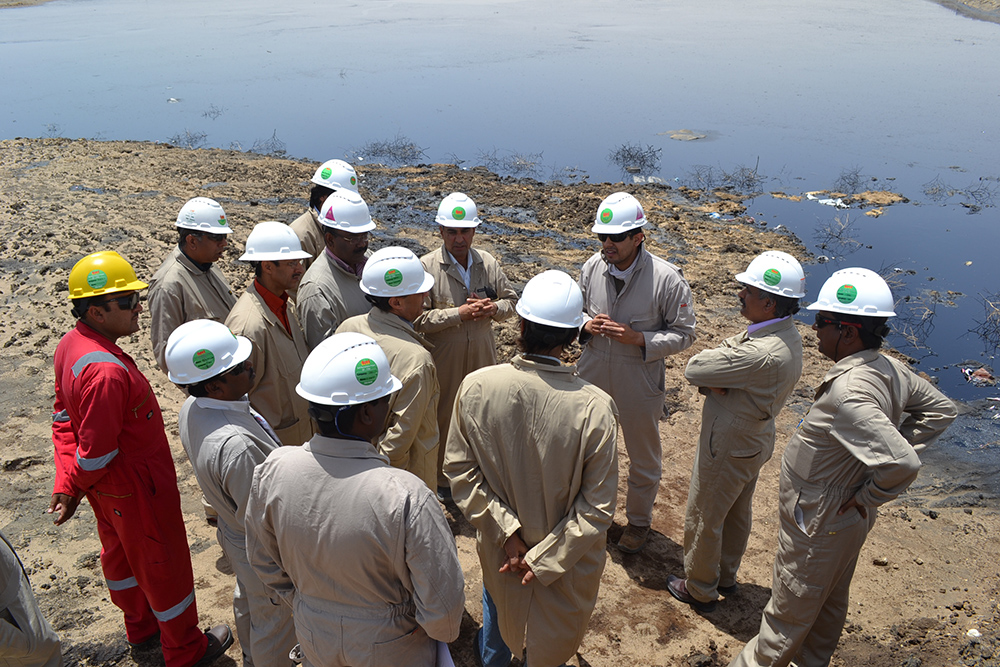
In today's dynamic world, where innovation drives progress, research holds the key to unlocking groundbreaking solutions to the world's most pressing challenges. Yet, too often, these groundbreaking discoveries remain restricted to the confines of laboratories, failing to reach the hands of those who need them most—the end users. Bridging this gap requires a concerted effort, and entrepreneurship emerges as a powerful catalyst in this endeavour, a pathway to sustainable progress. Entrepreneurship serves as the vital link between the abstract realms of research and the concrete needs of society.
Oil spill and management of oil contaminated waste
Oil spills are a global problem that endangers ecosystems, plants, and wildlife. In 2023, there were 10 oil tanker spills worldwide, leaking more than 700 metric tons of oil. Every year, the National Oceanic and Atmospheric Administration (NOAA) respond to more than 150 oil and chemical spills in United States waterways. Oil spills into rivers, bays, and the ocean are typically caused by incidents involving tankers, barges, pipelines, refineries, drilling rigs, and storage facilities.
Despite the best efforts of the petroleum industry and consumers, oil spills across the country are increasing. Oil spills frequently occur in farmer fields due to the proximity of oil fields. These events often lead to significant financial losses for farmers over multiple crop seasons. Similarly, individuals reliant on fisheries suffer job losses due to oil slicks in rivers and lakes. To compensate for these losses, oil companies typically provide substantial annual payments. However, these are short term solutions. Sustainable solutions like treating the oil affected land or water making them useable are imperative for long-term resolution.
Research as a probable solution and the impact it can create
In 1992 just after first Gulf war, Department of Biotechnology, Government of India, initiated a programme on Petroleum Biotechnology. Research institutes like The Energy and Resource Institute (TERI) with the support of Department of Biotechnology, Government of India took a lead and worked on finding a solution for the same.
After screening over 1000 naturally occurring bacterial strains, four were chosen. Each strain specializes in degrading a specific fraction of oil, with no competition among them. Together, these bacteria can break down over 95 percent of the various petroleum fractions within 24 hours. The result of the extensive research led to discovery of ‘Olizapper’, a cocktail of four bacterial strains to treat crude oil and oily sludge, was eco-friendly and an economical option. This innovative product could biodegrade crude oil and oily sludge at a very fast rate under laboratory conditions.
Bridging the gap of research and end users
At this stage, one of the primary challenges the researcher faces are the translation of theoretical knowledge into real-world applications. While academic institutions excel in generating knowledge, the practical implementation of this knowledge often requires a different skill set and mindset altogether. Too often, researchers operate within silos, disconnected from the practical realities and needs of end users. Conversely, end users may remain unaware of the latest advancements in research that could address their challenges.
Additionally, research institutes have limited resources to fund such research activities or even scale it up to an industrial level. With focus on research and development, facilitating funds or applying for grants takes a back seat. This is where entrepreneurship steps in. A more sustainable approach for R&D activity is collaboration, where the technology is transferred to an industry player so that the solution is scaled up to be applied in real life situations.
Meeting financial challenges through creation of Start-up for smooth functioning of R&D work
The Indian start-ups initiative has been on an amazing journey since the Honourable Prime Minister unveiled the Start-up India Initiative on January 16, 2016. The government's purpose with this programme is to enable businesses to expand through innovation and entrepreneurship in the country, thereby boosting economic growth and creating large-scale jobs. The business entity incorporated by TERI and ONGC, follows a model similar to the Indian Start-up Initiative of 2016. Not only was the revenue generated but was also ploughed back for uninterrupted research and development activities. Additionally it created a large number of jobs for scientists, field workers, labourers and contractors. A win-win situation for the Research institute as much as it is for the oil company.
The product was utilized by major oil companies globally, including ONGC, IOCL, BPCL, HPCL and international entities like ADNOC and KOC, facilitated successful bioremediation of oil-contaminated sites. Operated by this innovative start-up, this technology efficiently treated over one million metric tonnes of oily sludge and soil. Its promptness in handling oil spills restored contaminated land to farmers, while also cleansing water bodies, benefiting fisheries. This exemplifies science's application for societal welfare, restoring ecological balance and livelihoods, notably in India and abroad.
This is an excellent example of a self-sustainable model of a start-up company which employs the funds back to the development of research and development activities, while also creating job opportunities. Thus, entrepreneurship serves as a powerful bridge between research and end-users, translating scientific discoveries into tangible solutions that address real-world challenges.
